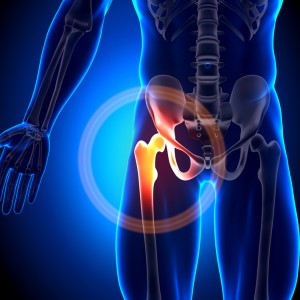 Is Prophylactic Surgery for Femoroacetabular Impingement Indicated? A Systematic Review.
Is Prophylactic Surgery for Femoroacetabular Impingement Indicated? A Systematic Review.
One of the hottest topics right now orthopedic surgery is femoroacetabular impingement.
Femoroacetabular impingement (FAI) is a term used to describe a medical condition where a person’s hip bones are not shaped normally. This causes the hip bones to fit together irregularly so that the hip bones rub together, damaging the hip joint.
There are two types of FAI: pincer and the cam effect. FAI with the cam effect means that the femoral neck morphology has changed. FAI with pincer impingement is when there is overhang of the acetabulum abutting up against the femoral neck of the hip. The thought has been that these abnormal findings seen on x-rays lead to abnormal contact forces within the hip joint and can potentially cause hip osteoarthritis.
Researchers Ask Important Questions About Femoroacetabular Impingement
Medical researchers are still learning about femoroacetabular impingement. A review paper published in the December 2014 edition of the American Journal of Sports Medicine worked to answer three specific questions. The investigation was completed at New York University Hospital for Joint Disease in New York, New York. The lead author was Jason Andrew Collins M.D.
The authors wanted to answer the following three basic questions.
- What is the prevalence of Femoroacetabular impingement (FAI) in the asymptomatic population?
- Is there a correlation between morphological characteristics of femoraoacetabular impingment in the development of premature degenerative joint disease: hip osteoarthritis?
- Will surgery to correct femoroacetabular impingement (FAI) prevent the development of osteoarthritis and subsequently prevent or delay the need for a total hip replacement?
Answers to Three Questions About Femoroacetabular Impingement
Answer #1. Femoroacetabular impingement is relatively common in asymptomatic patients, with prevalence rates ranging from 10 to 74%.
Answer #2. Early evidence suggests that arthroscopic treatment of symptomatic femoroacetabular impingement (FAI) can be beneficial to patients even beyond 50 years of age. The surgery can help improve pain and function if the patient’s hip patient is symptomatic. We cannot assure patients based on clinical evidence that surgical correction for femoroacetabular impingement, whether symptomatic or asymptomatic, will necessarily allow them to avoid osteoarthritis or future total hip replacement surgery.
It is also important to note that worse outcomes and a significantly higher failure rate have been shown, if surgery is performed in patients with a joint space loss greater than 2 mm. In other words if the arthritis is already fairly advanced, the prophylactic surgery will not help or delay the worsening of the hip osteoarthritis.
There are no prospective studies that show that femoroacetabular impingement leads to early osteoarthritis or the need for a total hip replacement .
Answer #3. There are no prospective randomized studies that demonstrate that surgery to correct femoroacetabular impingement (FAI) will prevent the development of early osteoarthritis.

Recent Comments